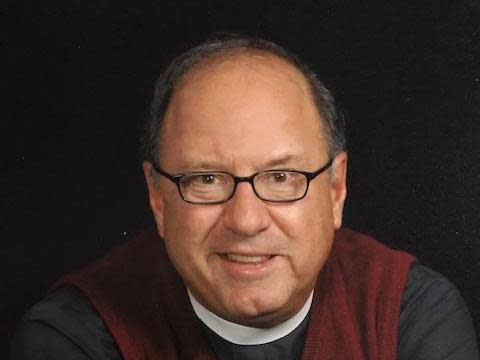Henry Idema: Do you believe in ghosts?
One way of looking at the New Testament is that it is a long ghost story. The gospels, Matthew, Luke, and John have stories of Jesus appearing to his disciples after his execution. They do not know what to make of these appearances. The church has called them resurrection narratives, although no one saw Jesus rise from the dead.
The church for most of its existence called the subject of these appearances "the Holy Ghost." My earliest memory of sitting in an Episcopal Church is reciting this line from the Nicene Creed in the 1928 "Book of Common Prayer": "I believe in the Holy Ghost, the Lord, and Giver of Life." I remember asking my parents, "so we believe in ghosts?"
The 1977 "Book of Common Prayer" has a different version of the creed: "We believe in the Holy Spirit, the Lord, the giver of life." I doubt that version captures any child's imagination or invites a question about whether ghosts exist. I am not sure why the change was made in the 1977 version, but I am guessing that calling Jesus in his risen state as "the Holy Ghost" somehow rubs against "modern" ways of thinking. I can envision a Holy Ghost because that is what the gospels are describing, that is what they saw, a ghost. I have no idea what a holy spirit looks like.

The Ku Klux Klan emerged from the defeat of the South in the Civil War, and its members wore white sheets, representing the avenging ghosts of those killed in what they called a just cause. These "ghosts" haunted the Black people of the South and terrorized and killed thousands of them. You can bet the Black folks in the decades after the Civil War believed in those ghosts, and were terrified by them. Sadly those ghosts still exist in our society, even when they are not dressed up in white sheets as ghosts.
I was watching with a friend the classic 1937 movie "Topper," starring Cary Grant and Constance Bennett, whose characters were killed in an auto accident, only to find themselves arising from the dead as ghosts. Their ghostly state was to remain until they did one good deed, something new for this hard-drinking selfish married couple. So they haunt Cosmo Topper, played by Roland Young, until their one good deed is accomplished for him, and presumably, they enter heaven.
Anyway, I turned to my friend and asked her: "Do you believe in ghosts?" She said no, but then I asked: "Would you live in a house where one or more murders had taken place?" She said, "no." Why not — if you do not believe in ghosts?
In some states, real estate agents have to tell prospective buyers if murders or even natural deaths happened in the house.
Our fear of ghosts is in our unconscious minds, even if we say we do not believe in ghosts. Don't you get an eerie feeling when you explore an abandoned house? A ghost town gives us similar uncanny feelings. Isn't Halloween a way of assuaging our deepest fears, fears of the unknown, fears of death?
Facebook is filled with ghosts. I have had many friends die but each year they reappear when Facebook reminds me to give them birthday greetings. Eternal life is dying while having a Facebook account. You never disappear.
I think ghosts will always be with us in some form to mark the passing of time, to remind us of horrible things that have happened to our fellow human beings in a particular place, where now people claim they have seen ghosts, e.g. graveyards, battlefields in hotels. Ghosts give us hope, or fear, that death is not the end.
When the church moved away from believing in "the Holy Ghost" to the "Holy Spirit," it lost an image that inspired or frightened the imagination. The church hid the reality of Jesus appearing as a ghost. The church wanted to tell us that Jesus as a ghost is no longer with us but he is very much with us as a spirit. That is comforting and less scary than a ghost.
When we bury our ghosts — our hatreds and resentments, our racism, our lust and envy — they have a way of returning. Freud called this the return of the repressed. And when these ghosts return, they seek revenge. The Romans executed Jesus, and he returned as a ghost, which arguably destroyed the Roman Empire that crucified him. His church finally prevailed over Rome and became the state religion of the empire under the emperor Constantine in the fourth century.
Between now and November, we are going to witness a lot of hatred, resentment, vows of retribution, and even violence. The ghosts of 2020 and Jan. 6 are returning to haunt us. Can't you see these ghosts emerging each day? I can and it frightens me, as it should you. Believing in them is the first step in defeating them and forcing them to leave us for the Hell they come from.
— Henry Idema lives in Grand Haven. He can be reached at henryidema3@yahoo.com.
This article originally appeared on The Holland Sentinel: Henry Idema: Do you believe in ghosts?
